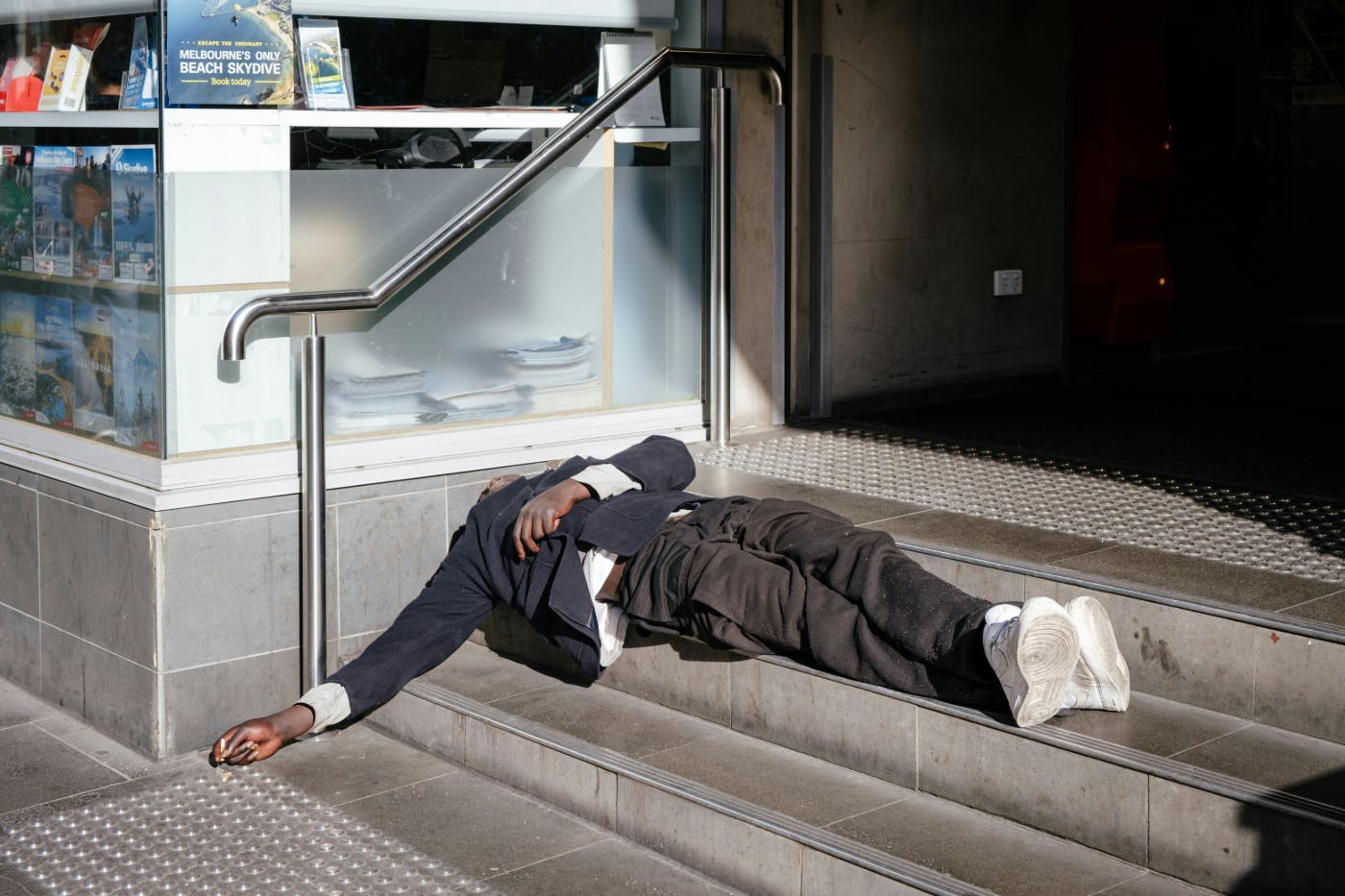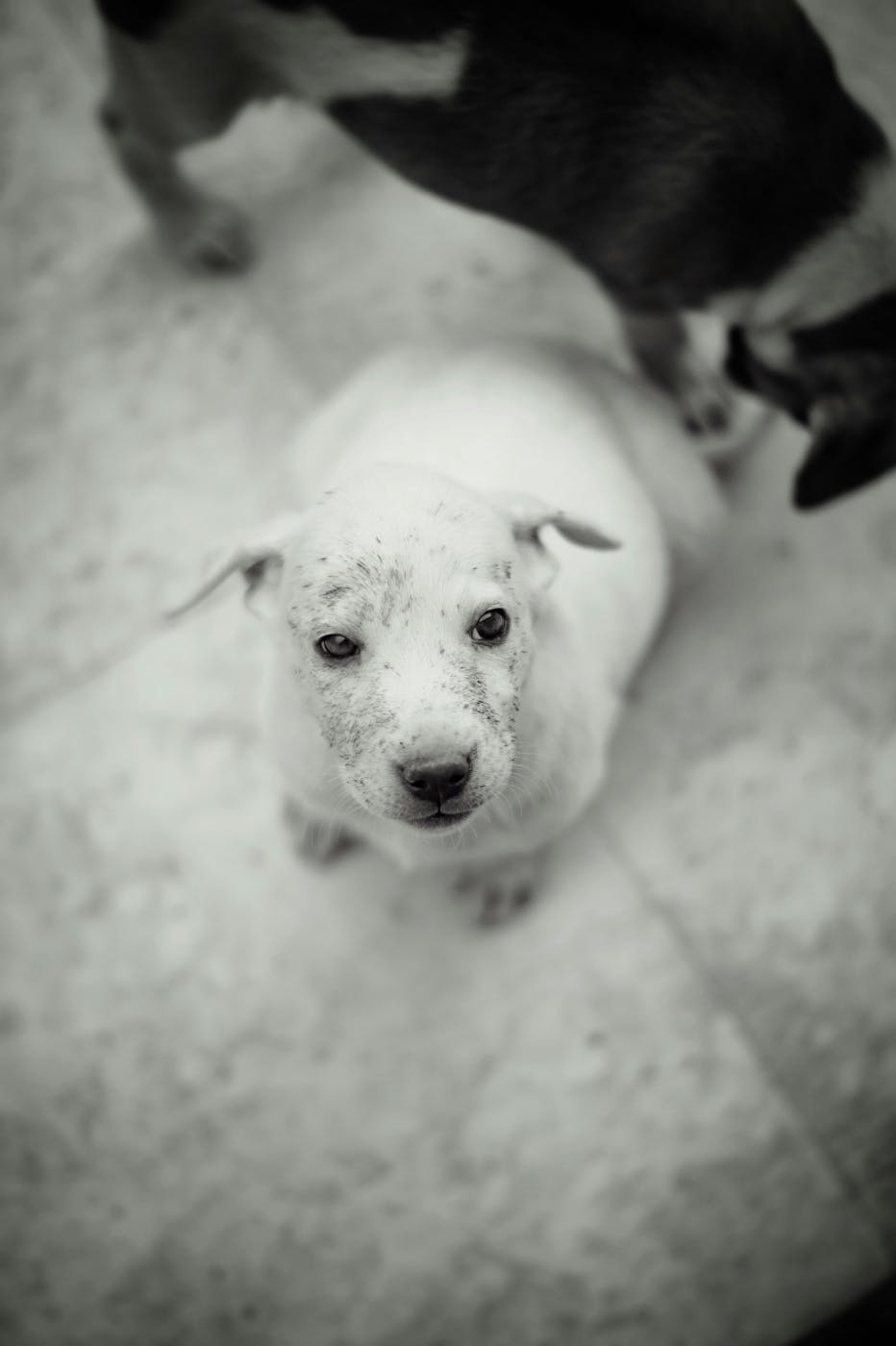
Somewhere along the way, work stopped being a job and became an identity. A mission. A badge of honor. But for some, that badge is soaked in stress, silence, and something far darker.
The Price of Loyalty
If you’ve ever met me, then hearing me say I don’t go to the gym isn’t going to send you into convulsive shock. I’m not a gym rat. I don’t like lifting, running, or cardio of any kind. I’m pretty sure my treasonous body will eventually get fed up with the abuse and shut down completely. I won’t die, per se—I’ll just become one of those people trapped in their own body, unable to move, tossed into a big pot while someone says, “That’s enough. Sleepy time now.”
When people ask why I don’t go to the gym anymore—because I used to—I tell them it’s not the exercise I hate. It’s the culture. The grunting, the flexing, the mirror theatrics. I can’t stand the “Keep it up, little dude, you’re getting there” faux encouragement. But mostly, I hate the language. No pain, no gain. If it’s not hurtin’, it’s not workin’. That backward-baseball-cap, shouted-at-nobody, “if you’re not bloody, you’re not trying” mindset just stopped working for me. So I left the gym and all its machismo behind. I chose being supine. I welcomed sloth.
The same reason I quit the gym is why I can’t stomach certain corporate cultures. Work is life. Rise and grind. All those pithy little slogans that are supposed to inspire, but mostly make me stop and think, “Do I really owe my last breath to this company?” The answer, of course, is no. No, I don’t. And I don’t want to rise and grind unless we’re talking about Jamaican Blue Mountain coffee to go with a nice omelet and some sausage.
And I know I’m not alone in this feeling.
Still, corporate culture insists we strive, drive, and survive to thrive. It’s madness.
You’ve seen the slogans: “Work hard, stay humble.” “Hustle beats talent.” “We’re a family here.”<br /> They’re stitched into startup culture, plastered across LinkedIn profiles, and whispered like gospel in late-night Slack threads. Somewhere along the way, work stopped being a job and became an identity. A mission. A badge of honor. But for some, that badge is soaked in stress, silence, and something far darker.
In China, it’s called 996—a system where employees are expected to work from 9 a.m. to 9 p.m., six days a week. In Japan, there’s karōshi, a word so culturally specific it translates chillingly to death by overwork. Different names. Different histories. Same haunting outcome: a workforce stretched so thin, it begins to disappear.
For decades, brands—especially in Asia—have wrapped overwork in the velvet of loyalty and sacrifice, turning human exhaustion into something noble, even aspirational. But the tide is shifting. The world is watching. And the question is no longer how much are you willing to give? It’s why are we still asking people to give so much in the first place?
Because no matter how sleek the logo, how powerful the mission, or how big the IPO, a brand that burns through its people eventually burns out.
And nowhere is that burnout more industrialized—more corporately blessed—than in China’s booming tech sector, where long hours aren’t just expected, they’re practically mythologized. This isn’t just overwork. It’s a system. A schedule. A brand. They call it 996.

996 – When the Brand Becomes the Boss
996 stands for 9 a.m. to 9 p.m., six days a week—a brutal, 72-hour work schedule that became the unofficial operating system of China’s tech industry. It was never written into law, never openly codified. But it was expected, encouraged, and, for a while, even celebrated as a kind of badge of startup honor. If you weren’t working 996, were you even trying?
Major companies like Alibaba, ByteDance, and Huawei became synonymous with this grindset. Jack Ma, co-founder of Alibaba, once called 996 “a blessing,” suggesting that only those willing to put in extreme hours could find success. The implication was clear: your time, your health, your identity—these are things to be sacrificed on the altar of innovation.
996 became a brand. Not one designed by a marketing team, but one built through shared exhaustion, peer pressure, and a national appetite for speed and scale. It promised a chance at greatness—if you were willing to disappear into it.
But the cracks began to show.
By 2019, tech workers had had enough. A protest movement called “996.ICU” gained traction, its name a grim punchline: if you work 996, you’ll end up in the ICU. A public GitHub page began listing companies that enforced 996 hours, calling them out by name. Chinese courts eventually declared 996 illegal in 2021, but enforcement remains rare, and workplace expectations haven’t fully caught up.
The real damage wasn’t just physical. It was existential. The people powering these billion-dollar unicorns started asking the same question many of us have whispered behind screens and in Slack DMs: What am I giving up? And who’s it really for?
When the company becomes the mission, the identity, the purpose, you stop working for a brand. You start serving it. And that’s not a career. That’s a quiet form of erasure.
China’s version of overwork may be loud, defiant, and increasingly public—but Japan’s? Japan’s is quiet. Ritualized. Hidden in plain sight. If 996 is shouted from rooftops, karōshi is whispered behind closed doors. And it’s been happening far longer.
Karōshi – The Japanese Tragedy That Isn’t Called 996
China’s version of overwork may be loud, defiant, and increasingly public—but Japan’s? Japan’s is quiet. Ritualized. Hidden in plain sight. If 996 is shouted from rooftops, karōshi is whispered behind closed doors. And it’s been happening far longer.
Karōshi translates chillingly to death by overwork. It refers to sudden heart attacks, strokes, and suicides tied directly to long hours, intense pressure, and chronic stress. But karōshi isn’t a glitch in the system. It is the system. And for many workers in Japan, it’s a risk baked into the job description.
You don’t complain about it. You don’t question it. You stay late—often hours past your scheduled time—not because you’re inefficient, but because leaving “on time” makes you look selfish. You attend the post-work drinking parties (nomikai) because not showing up marks you as disloyal. You accept unpaid overtime (sabisu zangyō) because to ask for compensation would disrupt the unspoken code.
That unspoken code? It has a name. Actually, it has two.
In Japanese culture, there’s a distinction between honne (your true thoughts or feelings) and tatemae (the face you show in public). In many workplaces, especially the traditional ones, tatemae rules everything. You smile when you’re overwhelmed. You nod even when you’re exhausted. You act loyal even when you’re falling apart.
As this ThoughtLab piece explains, the gap between honne and tatemae is more than social etiquette—it’s a system of emotional containment. One that keeps workplaces harmonious on the surface, while workers absorb the pressure in silence. Overwork isn’t just tolerated—it’s practically scripted.
It took tragedy to pull that script into the spotlight. In 2015, a 24-year-old employee at the advertising giant Dentsu took her own life after logging more than 100 hours of overtime in a single month. The case shocked the nation and forced a long-overdue reckoning. By 2018, Japan passed labor reforms capping overtime at 45 hours a month. Remote work and flexible policies grew during the pandemic, adding a few new lines to an old script.
But the culture hasn’t fully caught up. The honne—burnout, frustration, disillusionment—still simmers beneath the tatemae. And as long as that divide remains sacred, change will only go so far.
But here’s the twist: neither China’s militant overdrive nor Japan’s silent endurance would work without one crucial illusion—the idea that all this sacrifice means something. That loyalty is rewarded. That the pain has a purpose, that’s the myth that keeps the machine running. And it’s time we talked about it.

The Myth of Loyalty – When Brands Hide Behind Culture
The most dangerous thing about toxic work culture isn’t the hours. It’s the story we tell to justify them.
Whether it’s 996 in China or karōshi in Japan, the engine doesn’t run on time—it runs on belief. Belief that staying late proves you’re dedicated. That burnout means you’re pushing your limits. That missing your kid’s birthday is a small price to pay for long-term loyalty. But loyalty to whom?
These narratives aren’t just cultural—they’re branded. Companies craft slogans, mantras, and mission statements that wrap relentless productivity in the language of passion and pride. We’re a family. We go above and beyond. Our people are our greatest asset. Except assets don’t cry in bathrooms. Families don’t track KPIs.
The irony is that this myth of loyalty often works best when paired with culture-specific scripts. In Japan, tatemae smooths over any visible signs of exhaustion. In China, the national push for economic ascent justifies personal sacrifice. The loyalty feels earned—sacred, even—when it’s actually just strategic silence.
And it’s not just an Asian problem. Western companies do this too, just with different wallpaper. American startups lionize the “grind.” Founders tweet about sleeping under their desks. Interns wear 80-hour weeks like a badge of honor. The accent changes, but the myth stays the same: if you suffer now, glory awaits. And if it never comes? Well… maybe you just didn’t want it bad enough.
It’s a brilliant system, really. Make people believe that exhaustion = excellence, and they’ll regulate themselves. The brand doesn’t have to crack a whip if the workers already carry one in their heads.
But myths only hold as long as people believe them. And lately, the cracks are showing. A new generation isn’t just rejecting the grind—they’re calling it out, loudly. And brands? They’re being forced to listen.
The Branding Reckoning – What Employers Owe Their Workers
For years, the grind was glorified. Overwork wasn’t just normalized—it was romanticized. But something changed. Somewhere between burnout memes and pandemic-fueled awakenings, people stopped treating exhaustion like ambition. And in the silence that followed, a new question emerged: What do employers actually owe the people who keep their lights on?
Gen Z didn’t invent the pushback, but they’re fluent in it. They’ve taken the old slogans—hustle hard, whatever it takes, we’re all in this together—and held them up to the light. And when those words don’t match the lived reality? Screenshots fly. Glassdoor explodes. TikToks go viral. Suddenly, “we’re a family” reads more like a threat than a promise.
This isn’t just a shift in employee expectations—it’s a brand crisis in slow motion. Because employer branding isn’t what you post on LinkedIn, it’s not the perks or the ping-pong tables or the branded hoodies. It’s the felt experience of working somewhere. It’s how people talk about your company when they walk out the door.
And make no mistake: that reputation doesn’t stay internal. It bleeds into customer perception. Into investor confidence. Into public trust. If a brand treats its people like parts, consumers notice. If a brand champions empathy, flexibility, and actual care? That becomes part of the product.
In this new landscape, the winners won’t be the ones who squeeze the most out of their workers. They’ll be the ones who stop squeezing. The brands that understand people aren’t resources—they’re the reason.
This isn’t just a labor issue. It’s a branding issue. Because when exhaustion becomes your business model, it eventually becomes your brand. And the brands that survive? They’re the ones that remember: people are watching, and people remember.

Summing Up
Overwork isn’t a virtue. It’s a branding liability dressed in motivational slogans and passed off as company culture. Whether it’s the rigid grind of 996, the silent suffering of karōshi, or the soft-focus version baked into startup life, the message has been the same for too long: your worth is tied to your output.
But that narrative is cracking. Workers are rewriting the script. Loyalty is no longer blind—it’s earned. And brands that fail to understand that will burn through more than just talent. They’ll burn through trust.
Because the real legacy of a brand isn’t built on sacrifice—it’s built on care. Not just what you promise the world, but how you treat the people who help you build it.
At ThoughtLab, we help brands find their truth—and make sure it’s one their people can actually live with.

